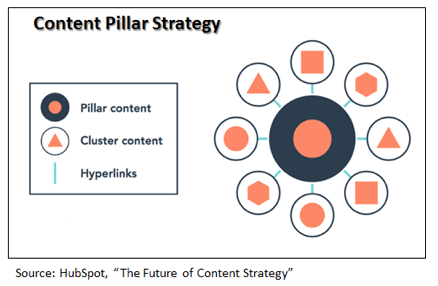Today's post comes to us from Steve Chipman of LexNet Consulting Group. Lexnet Consulting Group offers a wide range of applications and specialized services related to CRM, email marketing and inbound marketing. We’re pleased to re-post this piece written by Steve Chipman and originally posted on their blog, CRMSwitch, that provides a terrific overview of why companies should invest in CRM.
At CRM Switch, being true to our brand, we mainly cover topics around switching from a contact manager or from an old CRM system to a new CRM system. However, there are many companies that have never implemented any kind of CRM system. People at these companies are wondering why their company should invest in CRM for the first time.
Here are five common organizational problems and a description of how CRM can solve these problems.
1. Important prospect and customer data is scattered all over the place, which results in costly inefficiencies and potential missed revenue opportunities.
Within companies that don’t have a CRM system, prospect and customer information can be found on business cards, notepads, Post-its, emails, documents and spreadsheets. And worst of all, important data is often only stored in peoples’ brains.
CRM consolidates all this disparate information and makes it globally accessible within an organization (of course, data records can be secured so that people only have access to what they should see). Here’s a graphic from a recent presentation that we did.

2. Management has limited visibility to sales pipeline information
Without a CRM system, pipeline data can be a weekly information extraction and compilation exercise. Salespeople need to be repeatedly reminded to email a spreadsheet of potential deals and then an administrator manually consolidates the information for management.
With a CRM system, a company has a centralized, Web-based system where salespeople can maintain their pipeline of sales opportunities. Management can pull reports on-demand or reports can be automatically emailed. Will some salespeople still have to be reminded to update their deals? Of course.
3. Customer service response is slower than it should be
If a company does not have a structured, shared system for fielding customer service issues and collaborating on issue resolution, client problems can languish. In some cases, an issue can be completely lost sight of.
A CRM system can provide customers with multiple options for issue submission. Requests from all channels are funneled into a single shared repository of Tickets or Cases. From there, issues can be resolved collaboratively. Automatic Ticket assignment based on issue type and automatic escalations based on defined parameters are both possible within CRM.
4. Marketing operates on its own island
Marketing does its job of generating leads, but new leads are not distributed in a timely fashion. The marketing department receives no metrics as to which marketing efforts have been the most effective, which means that marketers “fly blind” on an ongoing basis.
With a CRM system, marketing functions are integrated into the sales department’s operations. New leads can be fed into a CRM system and automatically assigned to the right salesperson. Since the progress of leads can be followed through the entire sales process, the marketing department can understand which campaigns are the most effective ones and better focus its future efforts.
5. Internal collaboration mainly consists of an overwhelming amount of email
Within many organizations, internal communication and collaboration are accomplished by copying a lot of people on a lot of emails. Staff becomes overwhelmed with email and people often overlook critical information since they don’t have time to process the huge flow of information.
Certain CRM systems now incorporate collaboration features that can be a substitute for an over-reliance on email. A CRM system can be a repository of quotation templates, customer email templates and presentation templates. There can be internal conversation threads that are similar to threads that can be found on social media sites, which is becoming a more natural way for a group of people to communicate electronically.
These are just a few of the reasons that companies invest in CRM. Please comment below as to why your company is considering a CRM system or has already invested in CRM.
.png)






Leave a Comment